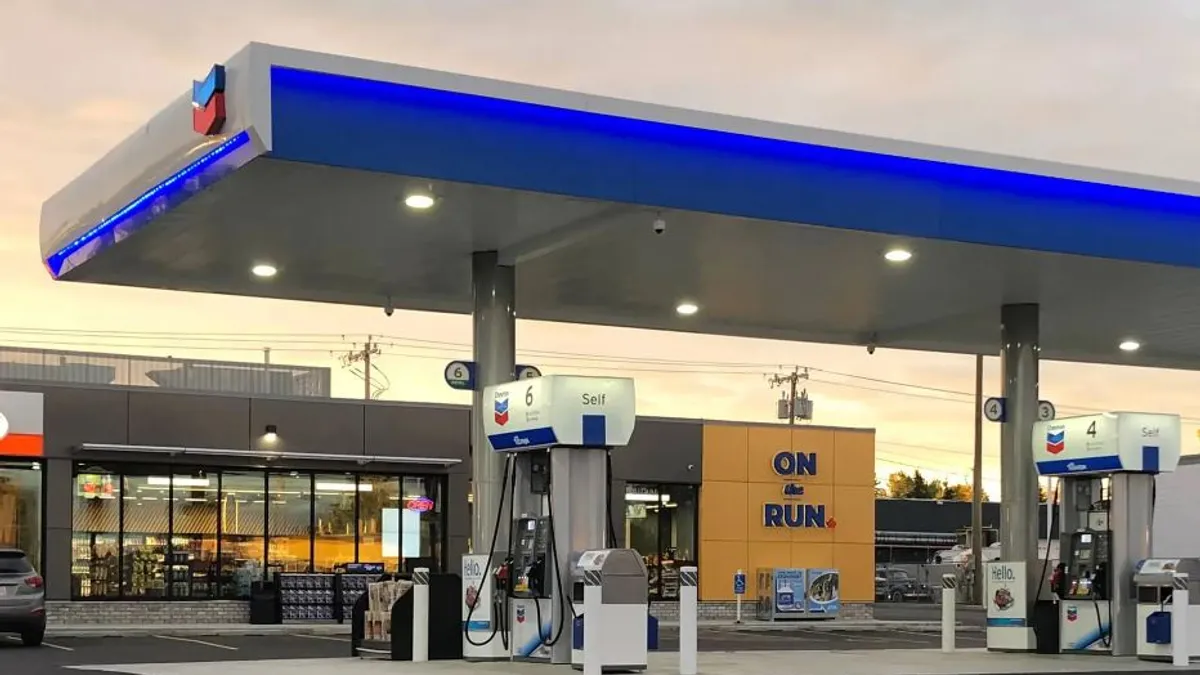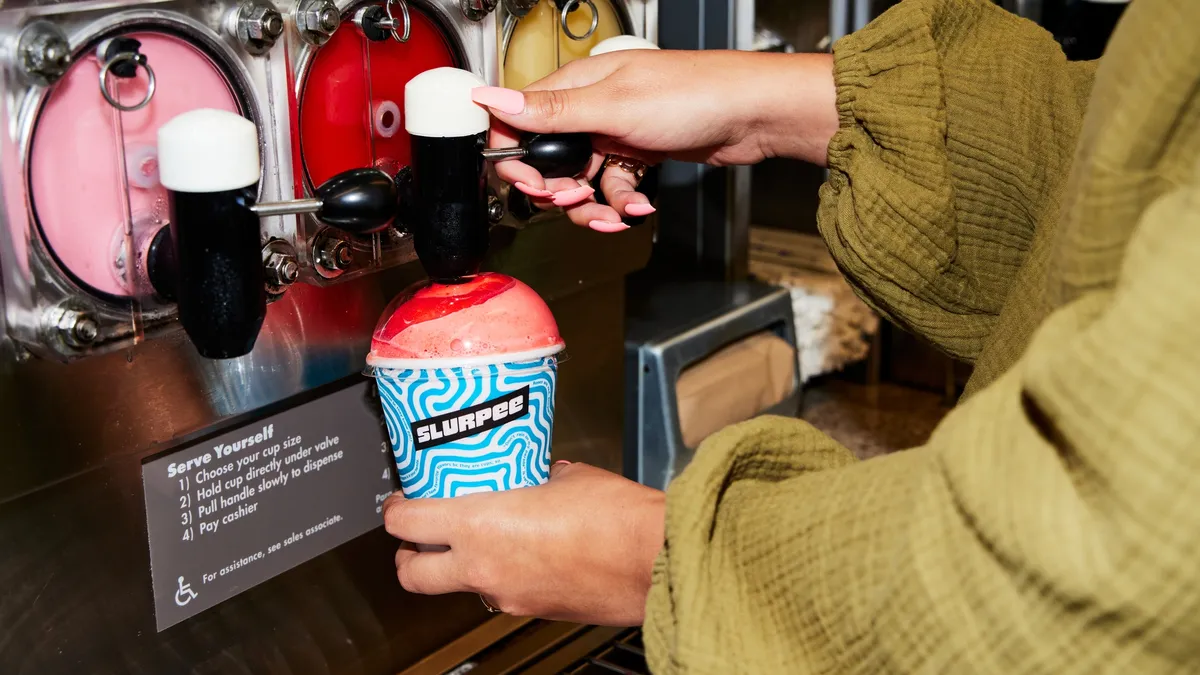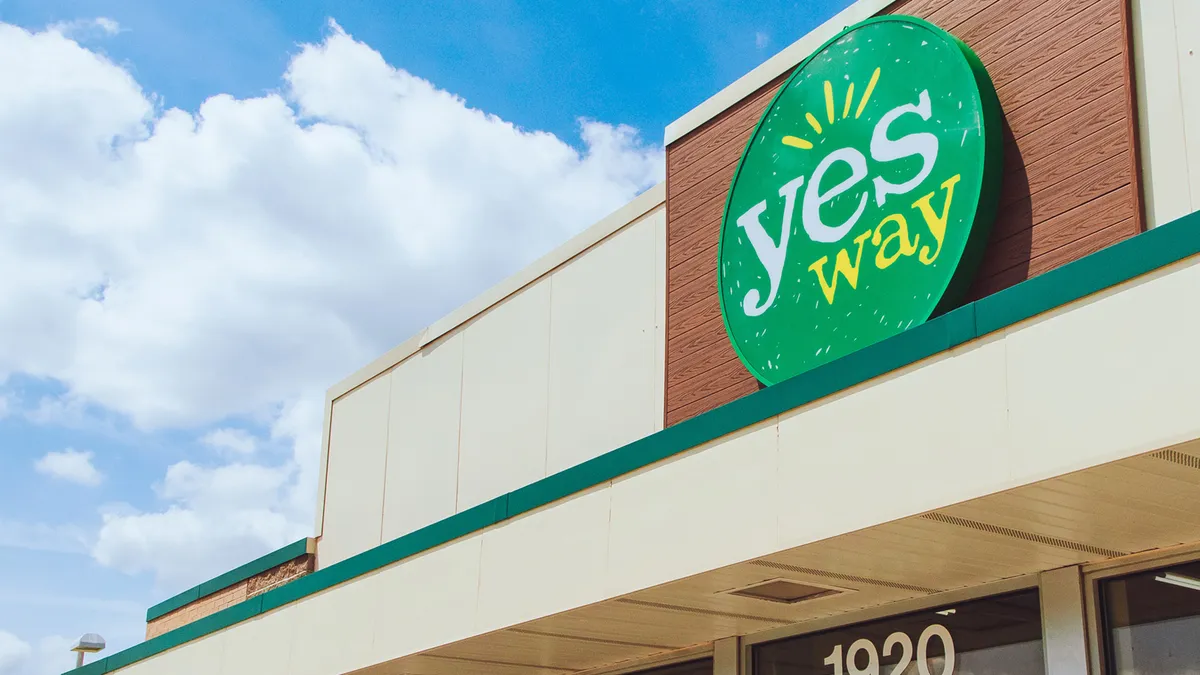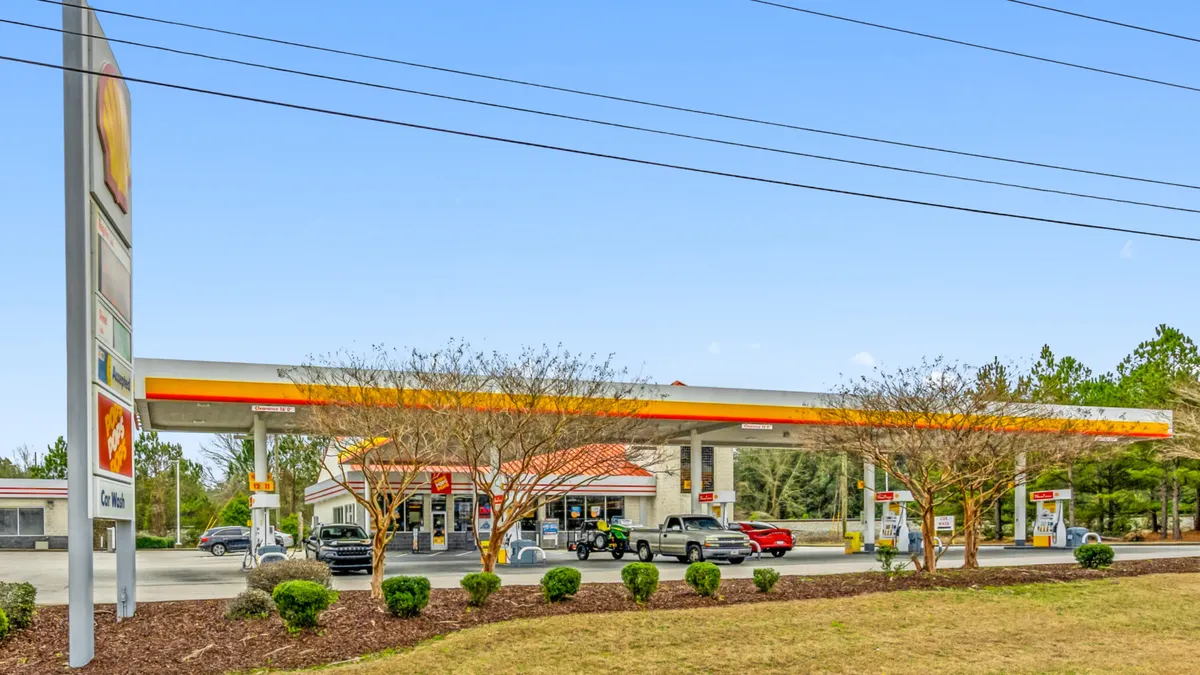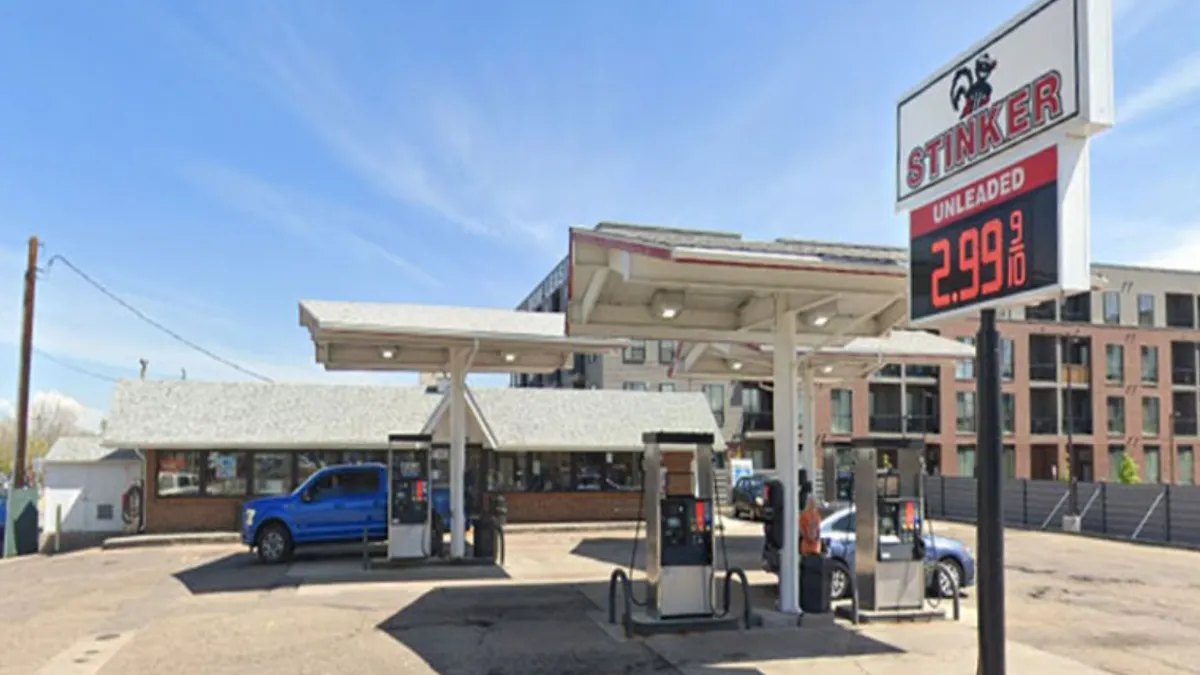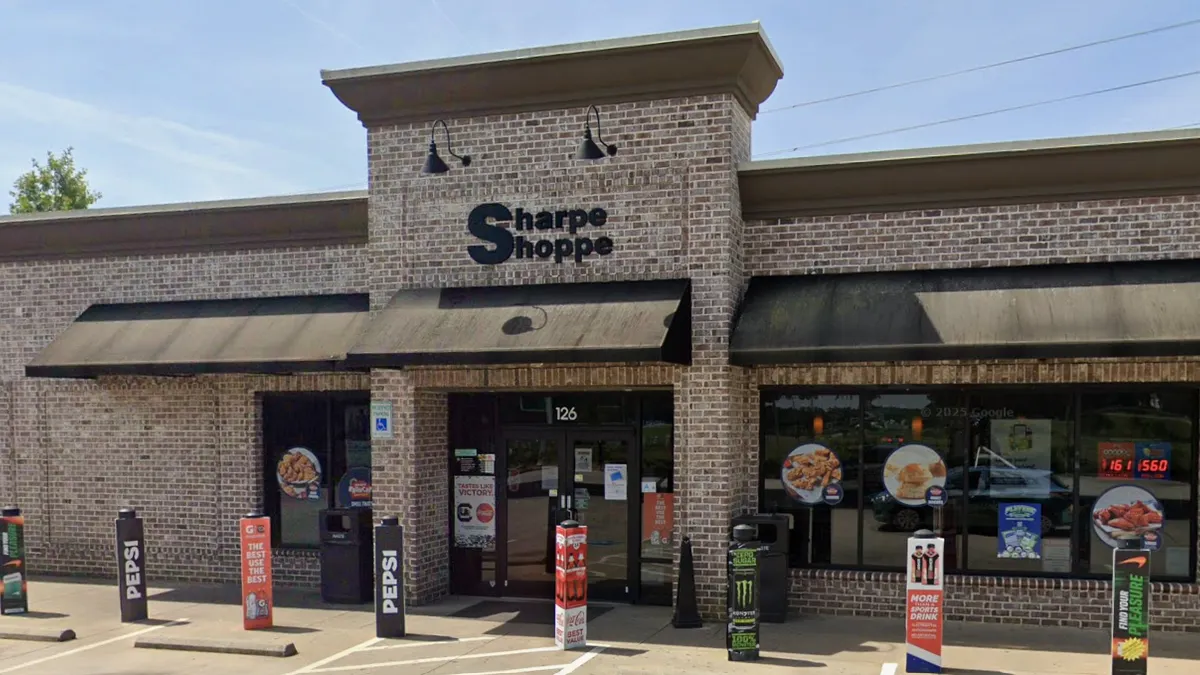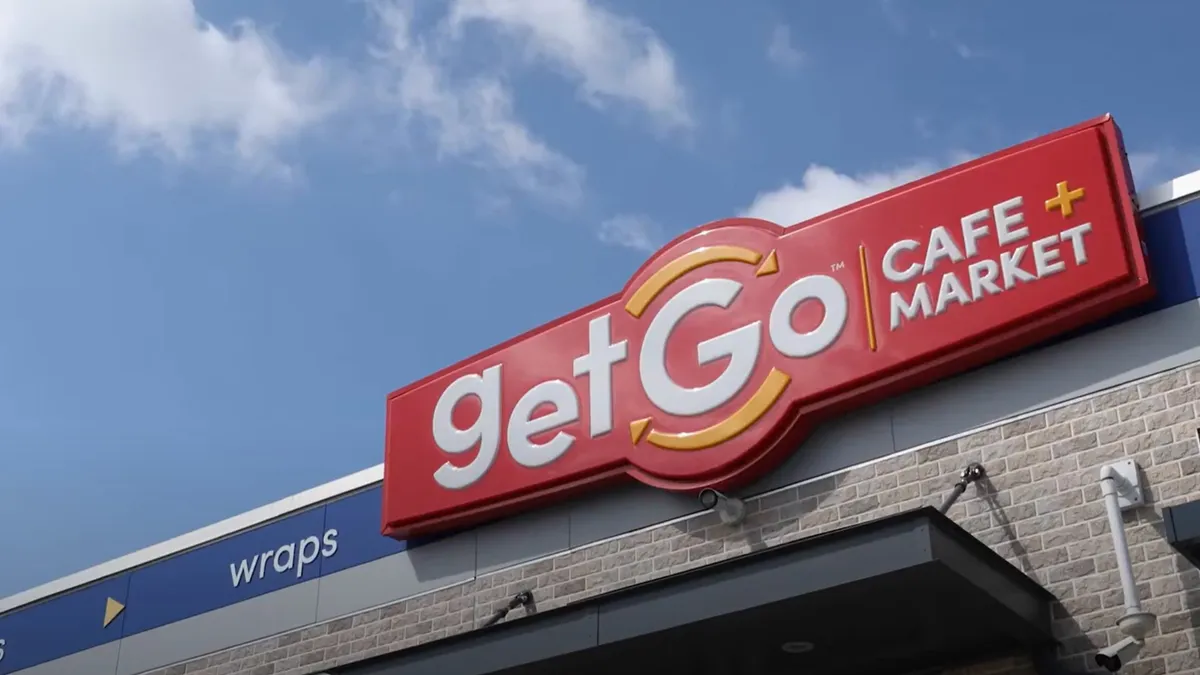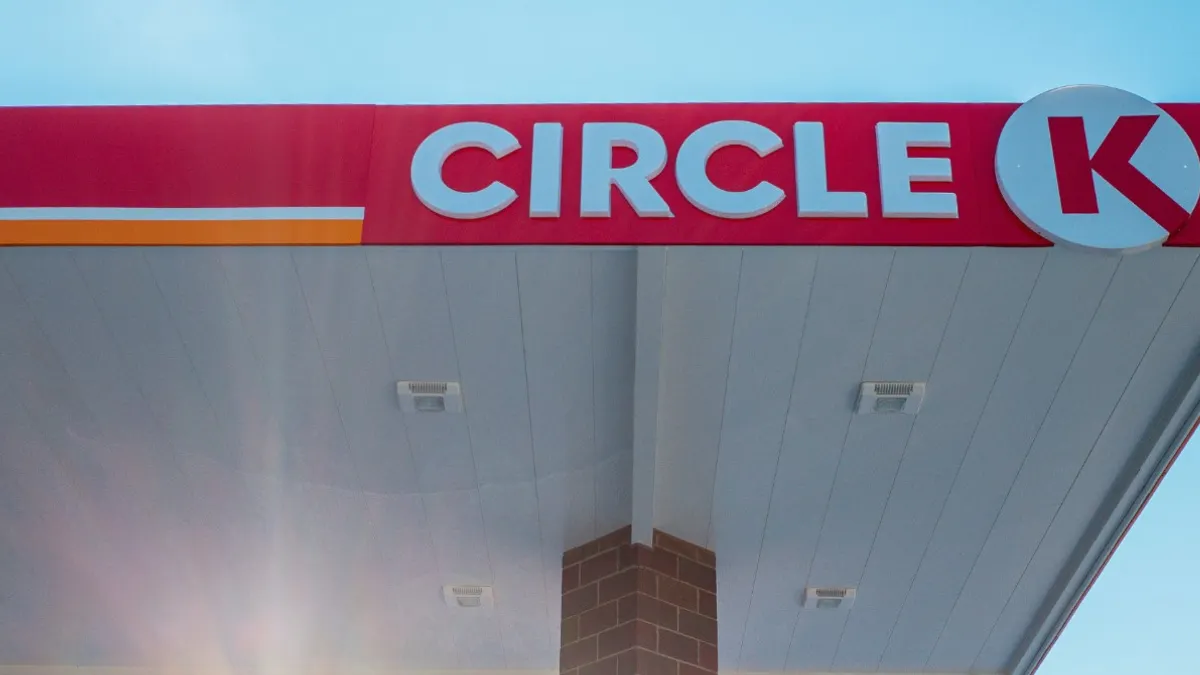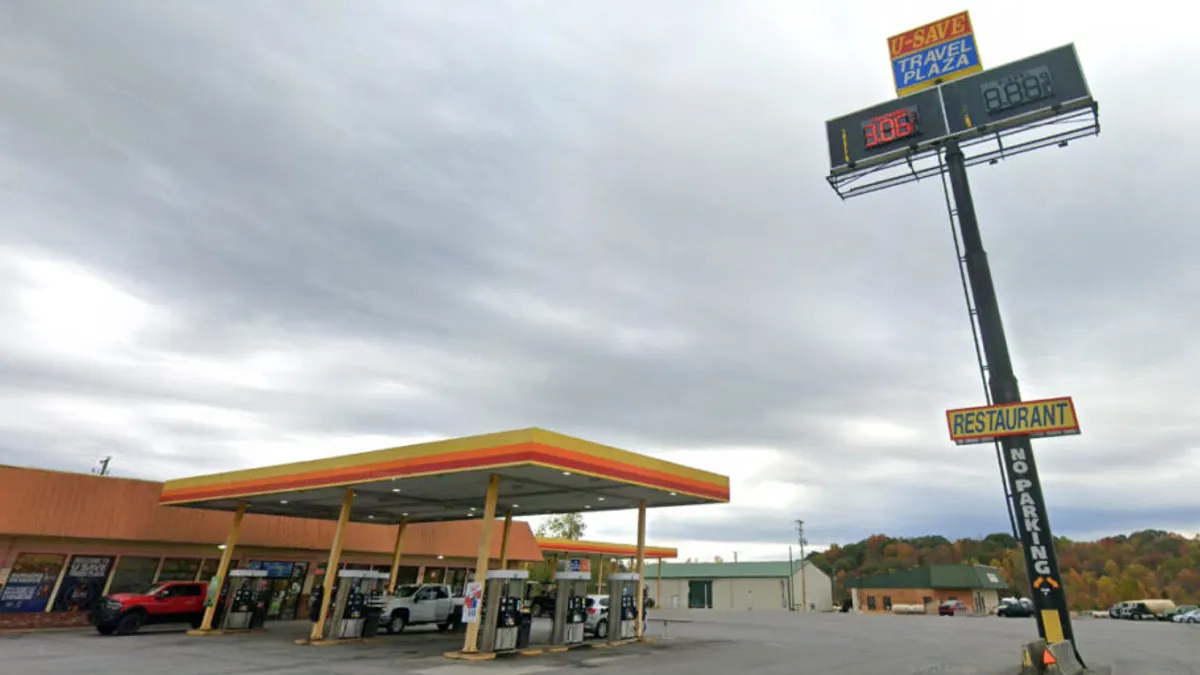Fueling Up is a column from C-Store Dive offering a fresh perspective on the top news and trends in the convenience store industry.
Sunoco was clear that fuel was the key driver in its pursuit of Parkland Corp., the Canadian retailer and refiner it agreed to acquire for over $9 billion earlier this month.
The Dallas-based oil company said at the time that it was particularly drawn to Parkland’s Burnaby refinery, which produces low-carbon fuels. It also emphasized its intent to expand Parkland’s Canadian transportation energy infrastructure, as well as support future growth in the U.S., Canada and the Caribbean.
What hasn’t been as clear is what Sunoco plans to do with Parkland’s convenience store network. As of March, that included 645 sites in the U.S., about 200 of which Parkland directly operates. There are also more than 2,300 sites in Canada, 800 of which are company operated.
Sunoco, which sold many of its c-store assets to 7-Eleven in 2024, only had about 76 company-operated c-stores in its network as of February. But if its deal to acquire Parkland closes next month, the company will soon find itself with thousands more units.
That leaves the big question everyone reading this article has on their minds: Will Sunoco sell or keep these sites?
That’s a loaded question that Sunoco is likely pondering at this very moment, experts say.
“I think that it's going to depend on the quality of the assets,” said retail consultant Jeff Keune, former chief marketing officer at Thorntons and vice president at both Yesway and MAPCO. “You need to get a sample of the situation you're walking yourself into.”
Likely to sell
The day the deal was announced, Sunoco and Parkland held a joint call to talk specifics. When an investor asked if Sunoco would consider offloading certain parts of Parkland’s business, Sunoco President and CEO Joseph Kim said Sunoco will “continually look at our existing assets.”
“We’re always taking some sites to optimize for stability, optimize for upside or eliminate downside… so this is right within our playbook,” Kim said.
My gut reaction to the proposed deal and Kim’s comments was that Sunoco would divest Parkland’s c-store network at some point. After selling hundreds of sites in recent years and retaining less than 100, c-stores clearly haven’t been a priority for the oil company.
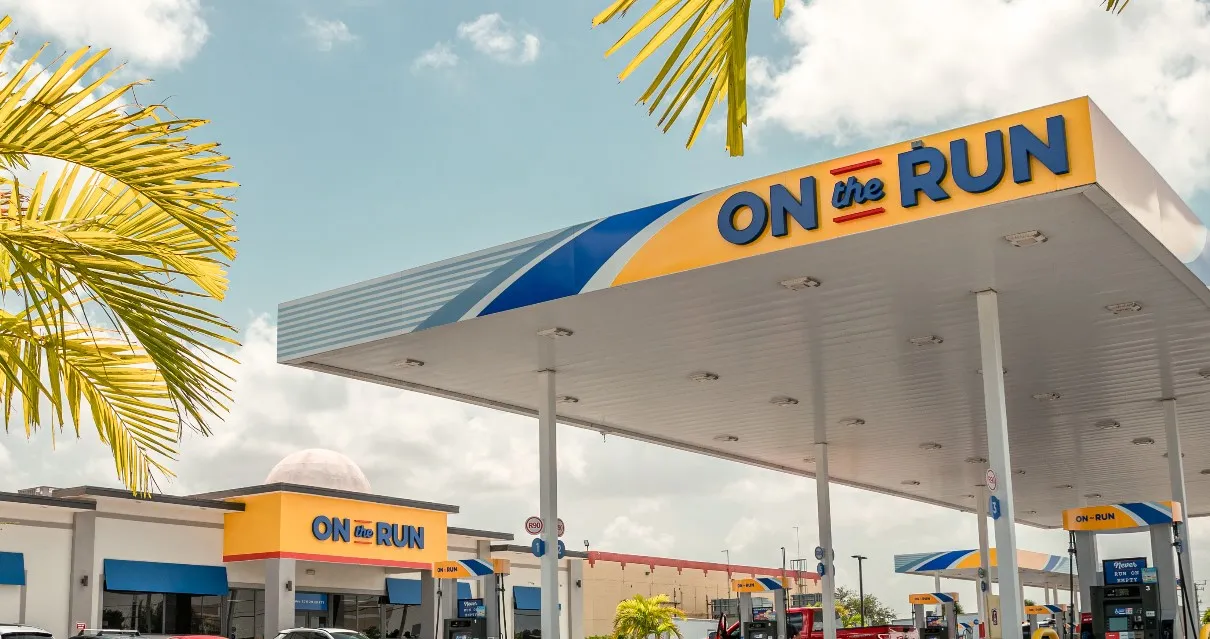
In Canada, Sunoco is entering a massive market, where it currently has zero fuel or retail operations. It will become a major distributor and operator in the country essentially overnight. Sunoco will likely need a significant amount of time to examine these assets.
But that’s a different story in the U.S., where Parkland operates its c-store and fuel businesses out of Idaho, Montana, North Dakota, South Dakota, Wyoming, Utah, Colorado and Florida. Although Sunoco has a few fuel terminals out West, most of its operations are in the middle of the country and East Coast, while most of its c-stores are in Hawaii.
Unless Sunoco plans on launching a large-scale c-store and fuel business out west, it’s likely Parkland’s locations in this part of the country will get divested, said c-store consultant Julie Jackson.
Sunoco would likely have to sell these stores in pieces instead of making one big deal, said Jackson, former president at G&M Oil, chief operating officer at Jaco Oil and an EVP at H&S Energy. This would open the door for notable players in that area of the country, such as Maverik, Jacksons Food Stores and United Pacific, she added.
“They may have opportunities there to pick up some of these business units,” Jackson said.
Jackson added that another reason Sunoco may want to sell Parkland’s company-operated stores is simply because this business model requires much more attention than dealer locations. She said she’s confident that at least in the U.S., Sunoco will end up selling Parkland’s c-store assets.
“I know the real estate brokers are right now probably frothing at the mouth,” she said. “NRC [Realty Capital Advisors] and Raymond James and all those guys are probably calling everybody, asking to get a part of this divestment package.”
The benefits of keeping the c-stores
Although Jackson expects a sale, she thinks Sunoco could benefit from keeping Parkland’s c-stores in Florida since Sunoco already has a decent fuel footprint on the East Coast.
Even if Sunoco doesn’t want to operate these stores directly, Jackson said the company can turn them to dealer locations — something Arko and Global Partners are currently doing to reduce operating expenses.
“It will be interesting to see how Florida works out,” Jackson said.
On the flip side, what if Sunoco decided to keep all of Parkland’s c-stores to extend its footprint into the western U.S.?
“I know the real estate brokers are right now probably frothing at the mouth."

Julie Jackson
C-store industry consultant
Is that strategy unlikely given Sunoco’s disinterest in c-stores in recent years? Sure. But is it possible? Absolutely.
“I would hope that they would keep them, because there's a lot of things that can be done and best practices that can be shared when you have that many company-owned stores,” Keune said.
When I asked why Sunoco might keep Parkland’s c-stores, c-store consultant Kevin Farley pointed to oil companies like Shell and BP reentering the retail game after selling most of their locations in recent years. Experts have previously said big oil brands could look to increase their retail presence in the face of electrification and the decline of traditional fuel.
“I can't imagine that part of the play would be for [Sunoco] to then get rid of those retail locations,” Farley said. “To me, it seems like Sunoco is looking to get more doors to fly the Sunoco fuel banner.”
I still side with Jackson. It feels like Sunoco is likely to divest Parkland’s c-stores. But Farley and Keune make a heck of a case for the oil company keeping them, noting that it has a real chance to bring a new competitive threat to the industry.
“If they keep them, that's going to be a net positive for the industry,” Farley said. “They'll be more competitive. They'll have a different product offering than [Parkland] had. I think anytime that happens, I think that's a bonus for the industry.”


